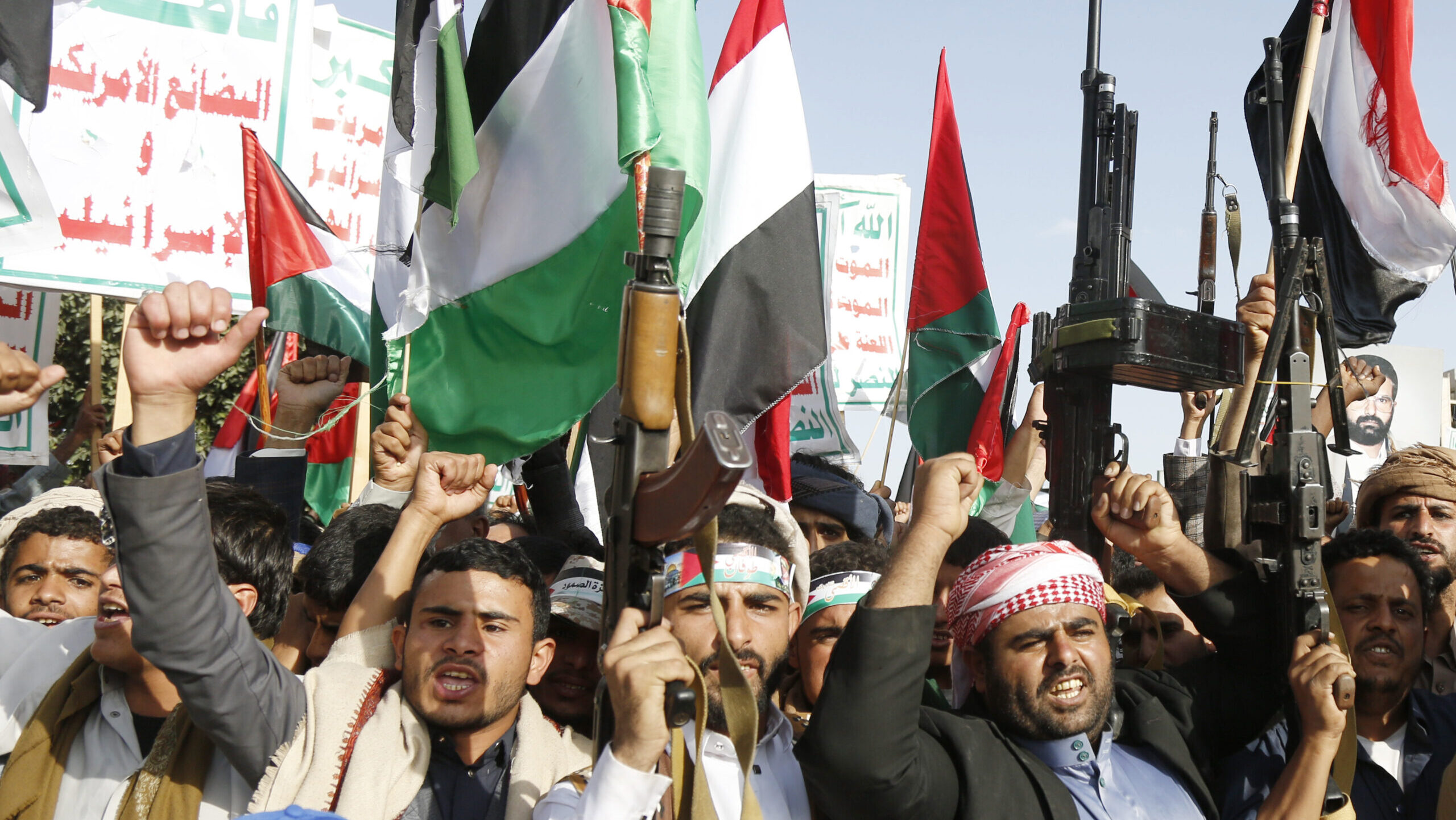Houthis Attack Israel in a Bid to Garner Internal Support
With missiles and drones, Houthis reassure the Muslim world that they are part of the ‘Axis of Resistance’
The war that started between Israel and Hamas on October 7, after Hamas’ deadly attack against Israeli civilians, has rapidly experienced the involvement of several Iranian-backed militias in different countries. Hizbullah, the Iranian proxy in Southern Lebanon, has almost on a daily basis fired anti-tank missiles toward Israeli communities near the border. A few attacks coming from Syria have also been reported since the war started. However, a new player unexpectedly joined the war two weeks ago from more than 1,000 miles away: the Houthis in Yemen.
According to experts, support for the Palestinians is common among the Arab world, and attacks on Israel might benefit the Houthi’s support base.
On October 31, the Houthis officially declared their involvement in the war in a televised statement issued by the group’s military spokesperson, Yahya Saree, as they took responsibility for drones and missiles fired at Israel from their territory in order to “Help the Palestinians to victory.” The group said that three drone and missile attacks have been launched toward Israel by them since the beginning of the war.
Israel deployed missile boats in the Red Sea to be able to intercept further attacks from the Yemeni militia.
Onur Sultan, a research fellow at Beyond the Horizon ISSG, a Brussels-based think-tank tackling security-related matters, told The Media Line that the Houthi involvement, “Is a symbolic move serving multiple purposes.”
Houthis confirmed their status as part of the Axis, and posed themselves as an ‘able’ group.
Give the gift of hope
We practice what we preach:
accurate, fearless journalism. But we can't do it alone.
- On the ground in Gaza, Syria, Israel, Egypt, Pakistan, and more
- Our program trained more than 100 journalists
- Calling out fake news and reporting real facts
- On the ground in Gaza, Syria, Israel, Egypt, Pakistan, and more
- Our program trained more than 100 journalists
- Calling out fake news and reporting real facts
DONATEJoin us.
Support The Media Line. Save democracy.

First, Sultan notes, this is a move to reassure that they are a part of the ‘Axis of Resistance,’ led by Iran. With the attack, he added, “Houthis confirmed their status as part of the Axis, and posed themselves as an ‘able’ group.”
Moreover, according to him, its involvement allows the group to maneuver in terms of internal public opinion. “Attacks work well for the Houthis based on the fact that it distracts Yemenis’ attention from internal problems emanating from bad governance, corruption, and economic crisis,” Sultan asserted, noting that the group still refuses to pay public service salaries from revenues earned from the import of oil in Hudayda which became possible after the truce.
A civil war broke out in Yemen in 2014 when the Houthis, an Iranian-backed militia, took over the country’s capital, Sanaa, and ousted the government. A few months later, a Saudi-led coalition intervened and backed the internationally-recognized government. Since then, the country has been divided into two sides. In the North, the Houthis rule with their headquarters in Sanaa, and the South is controlled by the internationally-recognized government backed by the Saudis. Their headquarters are based in the city of Aden.
Sultan noted that, as opposed to the reactions in the West, the perception of the Israeli military operations in Gaza is extremely negative in the Arab world. “With the attacks, the group seeks to increase its support base, playing on this sentiment,” he added.
“Ashraf” (not his real name), a conflict researcher who lives in the city of Aden, told The Media Line that the Palestinian cause is often employed by Islamist organizations to garner support, as it is a consensus among many different factions in the Muslim and Arab worlds.
“When you talk about Islamic factions like Hamas, Muslim Brotherhood, al Qaeda, and ISIS, all of them use Palestine as a cause that unites them. In fact, al Qaeda and ISIS use Palestine to recruit people,” he said.
The Houthis, Ashraf points out, are already controlling large parts of Yemen, have a lot of access to some resources, and have been growing stronger lately as different factions are constantly weakened. “The longer the conflict in Yemen, the stronger they get,” he continued.
Getting involved in the war is, according to Ashraf, a tool employed by the Houthis to increase the support and power that they currently hold. “These groups always have to look for a cause to unite people. It’s working to their advantage. There is a lot of unemployment in Yemen. So, when a group like this gives them a purpose, and a source of income, they will, of course, join that.”
He adds that the misinformation circulating on social media about the war is amplifying the effect.
“People are getting united against the response of Israel because of this disinformation. People almost forgot what Hamas has done, a month ago, because that’s how human brains work. They always remember what happened recently,” he noted.
Ashraf added that due to the high rate of unemployment in Yemen, the youth is strongly immersed in social media, where information is more available, but this includes distorted information. “They only wait for some groups to reach out to them and tell them: yes, this is how you can resist. It might radicalize a lot of people, especially the youth. I can really foresee that now,” he continued.
Sultan notes that despite the Houthis attacks toward Israel, the group is acting carefully in order not to jeopardize the unofficial truce that still holds in the country. “In the three waves of Houthi attacks toward Israel, Houthis have used the trajectory over the Red Sea instead of the Saudi territory. This shows the unwillingness of the group to foul [up the] truce and negotiations with the kingdom,” he said.

